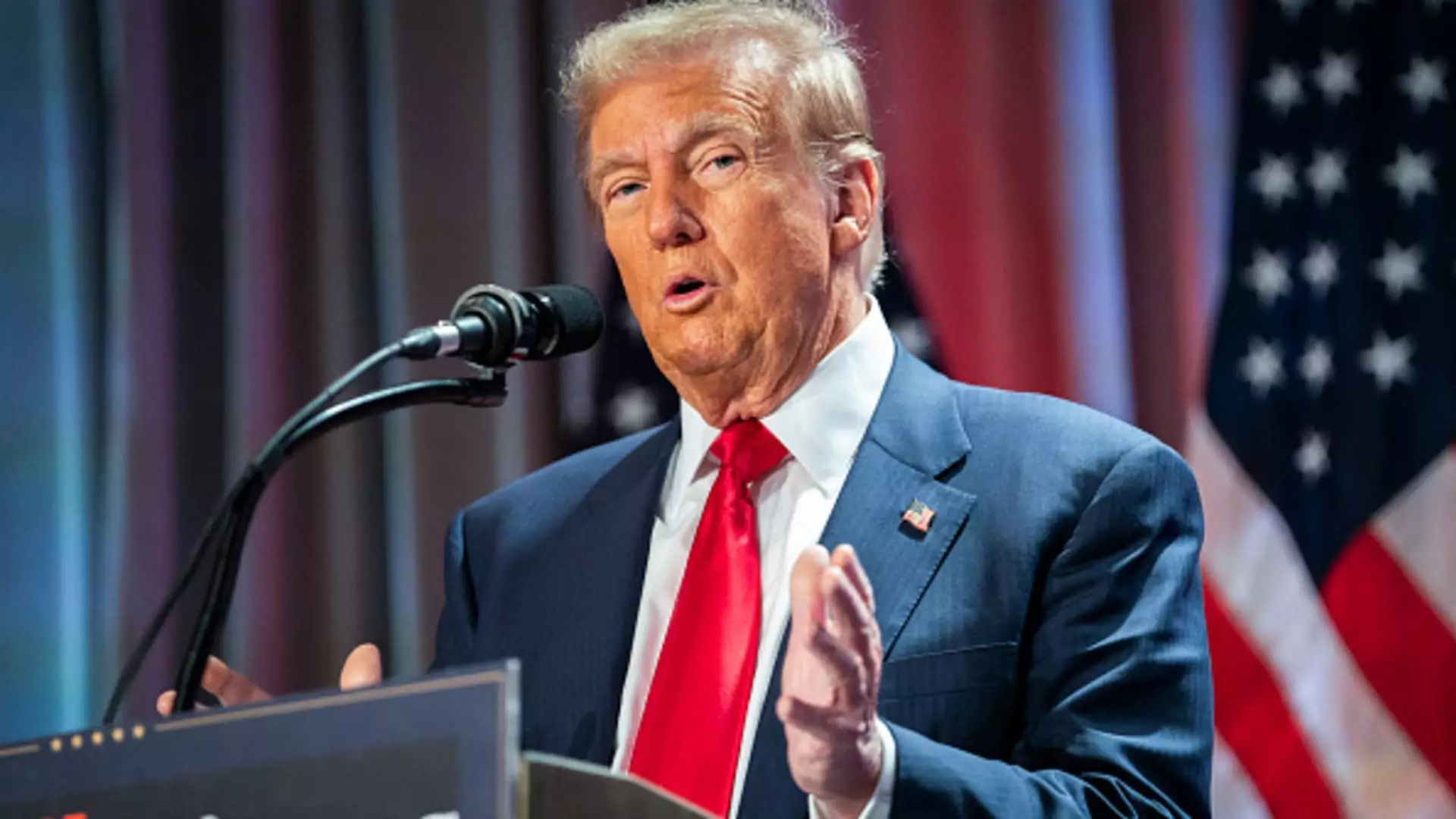As the financial landscape adjusts to the incoming administration of President-elect Donald Trump, investors are confronted with unique challenges, particularly concerning the anticipated tariff agenda. John Davi, a seasoned money manager and CEO of Astoria Portfolio Advisors, has expressed concerns regarding the inflationary potential of these policies. The implications of tariffs are significant; they can alter production costs and consumer prices, which might lead to an unpredictable economic environment. Davi’s perspective is particularly relevant in this context and provides a critical lens through which to evaluate the shifting dynamics of the market.
In light of these complexities, selecting the right investments becomes paramount. Davi advocates for a focus on small-cap industrial stocks over their large-cap counterparts, citing that these smaller enterprises may be better positioned to thrive in a domestically driven economic climate. Small-cap stocks often exhibit more volatility but can also offer higher growth potential, making them a strategic choice for investors looking to capitalize on pro-growth policies. Davi highlights this shift in institutional sentiment, as evidenced by the Russell 2000 index’s upward trajectory since election day, reflecting a burgeoning optimism towards small-cap stocks as they often flourish when domestic policies are favorable.
Davi’s emphasis on domestic investments aligns with the prevailing sentiment among investors who believe a pro-growth policy framework will dominate the next few years. He notes, “We’re overweight the U.S.,” suggesting that betting on American assets could be the most prudent approach in navigating predetermined macroeconomic conditions. His stance underscores the flexibility required from investors as they pivot towards domestic equities while factoring in the potential fallout from tariff policies. By maintaining a U.S.-centric investment posture, Davi aims to leverage anticipated gains fueled by domestic policies, thus minimizing exposure to global market volatility.
Davi’s cautious stance extends to fixed income investments, where he urges investors to tread carefully due to concerns surrounding the escalating budget deficit. The potential for rising interest rates, which are often a response to increased government borrowing, poses a considerable risk for bondholders. With the benchmark 10-year Treasury yield experiencing a significant increase since the election, the traditional safety of bonds may no longer offer the stability many investors seek. This trend compels a reassessment of investment strategies and prompts questions regarding the long-term viability of bonds in a rapidly evolving fiscal landscape.
John Davi’s insights into the potential economic ramifications of Trump’s policy agenda provide a valuable framework for navigating the intricacies of current market conditions. By advocating for a focused approach on small-cap industrials, maintaining a domestic investment strategy, and exercising caution with fixed income securities, Davi illustrates a balanced methodology for confronting the uncertainties of the new economic frontier. As the political narrative unfolds over the next two years, investors are advised to remain vigilant and adaptable to capitalize on the opportunities that arise amidst the challenges presented by upcoming tariffs and fiscal policies.

